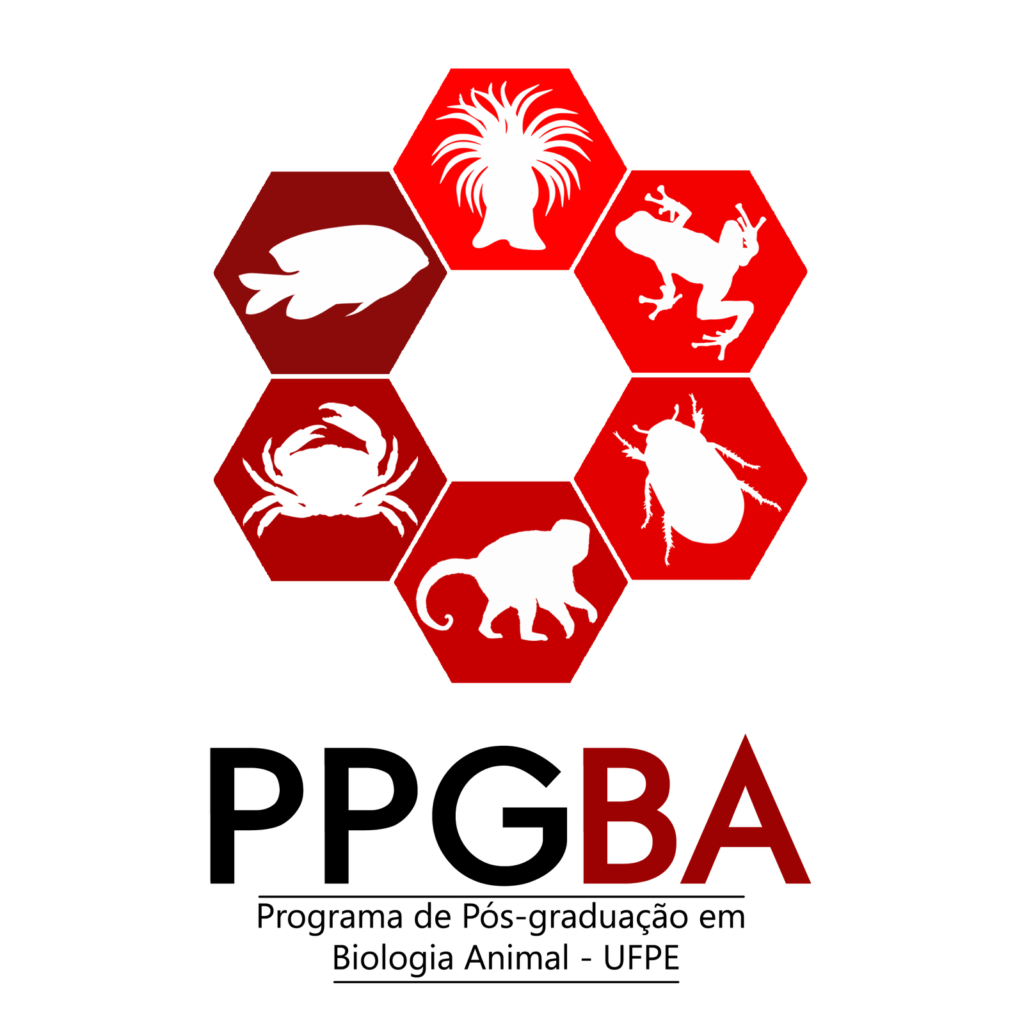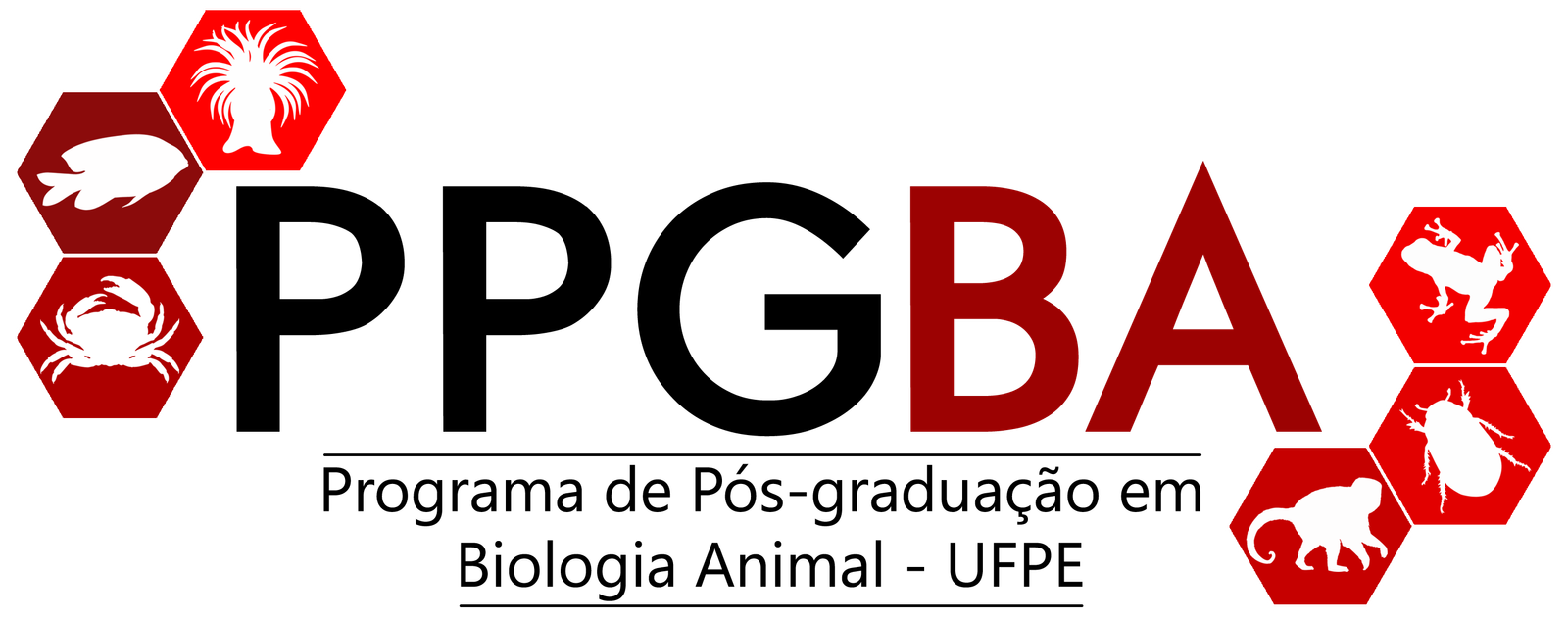
About the program
Our Graduate Programme in Animal Biology (PPGBA) started in 1994 with the creation of the MSc degree. In 2007, our PhD programme was approved by the the Brazilian Coordination for the Improvement of Higher Education Personnel (Capes).
PPGBA scored Level 5 in the last Capes evaluation, (scores go from 3 to 7). The Master’s course has a two-year duration, while the PhD can last four years.
We currently count on 30 supervising professors, 4 admin staff, over 70 students and four main research areas: Animal Biology and Behaviour; Taxonomy; Ecology and Applied Zoology.
We encourage interdisciplinary innovative research and international collaborations.
Master degree
The Master's in Animal Biology started in 1994.
According to the Internal Regulations, the Master's course will have a minimum duration of 12 (twelve) months and a maximum duration of 24 (twenty-four) months, counted from the month/year of the initial enrollment to the month/year of the dissertation defense, with the student required to have earned the total number of credits within this period.
The candidate for the Master's degree must complete a minimum of 24 (twenty-four) credits, of which 10 (ten) must be from mandatory courses and 14 (fourteen) from elective courses.
The candidate for the Master's degree must satisfy the following conditions:
- Have obtained the number of credits required by the Regulations.
- Have submitted a dissertation and had it approved, in accordance with the provisions of the Regulations.
- Have fulfilled all the requirements set by Resolution 10/2008 of the Teaching, Research, and Extension Council/UFPE and those outlined in the Regulations.
- Provide proof of having submitted a full article, related to the results obtained in their research, for publication in a scientific journal classified as Qualis B3 or higher, as qualified by the Biological Sciences I area of CAPES.
Doctorate
In July 2007, CAPES, during its 97th CTC meeting, decided to approve the opening of the Doctoral program in Animal Biology. The first cohort enrolled in 2008, and currently, a maximum of 10 spots are offered for the Doctoral level per year.
According to the Internal Regulations, the Doctoral program will have a minimum duration of 24 (twenty-four) months and a maximum duration of 48 (forty-eight) months, counted from the month/year of the initial enrollment to the month/year of the dissertation/thesis defense, with the student required to have obtained the total number of credits within this period. The candidate for the Doctoral degree must complete a minimum of 24 (twenty-four) credits, with four credits in mandatory courses.
The candidate for the Doctoral degree must satisfy the following conditions:
- Have obtained the number of credits required by the Regulations.
- Have submitted a thesis and had it approved, in accordance with the provisions of the Regulations.
- Have fulfilled all the requirements set by Resolution 10/2008 of the Teaching, Research, and Extension Council/UFPE and those outlined in the Regulations.
- Have passed a qualifying exam, held during the third year of the program, which will consist of a public defense of a manuscript to be submitted to a scientific journal classified as Qualis B3 or higher, as qualified by the Biological Sciences I area of CAPES, based on the results obtained during the thesis work, in front of a committee composed of three faculty members from the program, excluding the supervisor, appointed by the Board.
- Have a publication related to their thesis project accepted in a scientific journal classified as Qualis B3 or higher.
Research lines
The PPGBA operates in various areas of Zoology, divided into 4 research lines:
Animal Biology and Behavior – represent studies on the biology and behavior of terrestrial and aquatic animals. Animal – representam estudos sobre biologia e comportamento de animais terrestres e aquáticos;
Ecology – involves studies of natural history, analysis of ecological theories and concepts, biodiversity conservation, and exotic species.
Taxonomy of recent groups – involves studies on the characterization of biodiversity of aquatic and terrestrial animals, using morphological or integrative data, applied to phylogenetic and biogeographic studies.
Applied Zoology – a research line related to ecotoxicology studies to address ecological issues, environmental health, and ecosystem functionality, genetic and mutagenesis studies, and studies in forensic, agricultural, and medical zoology.
Objectives
To train qualified human resources in the field of animal biology at the master's and doctoral levels, with skills for learning, generating, and transmitting new knowledge, with scientific and civic engagement in society.
.
Infrastructure
The PPGBA/UFPE has 18 laboratories distributed across the departments of zoology and botany and the Academic Center of Vitória. In addition to these, it shares the infrastructure of the Northeast Biodiversity Prospecting and Management Center (NPGBio/UFPE https://npgbiocb.wixsite.com/npgbio) Which includes multi-user laboratories equipped for molecular biology, Scanning Electron Microscopy, and Microscopy with auto-mounting, providing autonomy for morphological and molecular analysis of projects. It also has a zoological collection room with species stored in sliding cabinet compactors.https://sites.ufpe.br/museuzoologia/colecoes-cientificas/) The NPGBio also offers two classrooms for 15 people, a meeting room for up to 20 people, and an auditorium for up to 68 people. The PPGBA also has an office for the Secretariat and Coordination, as well as an exclusive classroom with a multimedia system and space for 30 students.
Curriculum
Português
English
Português
English
Course Schedule
Cronograma 2025.1 – Presencial
Cronograma 2024.2 – Presencial –
Internationalization
The program involves faculty and students in UFPE's Internationalization Program. UFPE (Print).
The program also has collaborations with researchers from institutions abroad, including:
Biodiversity Research Center, Academia Sinica, Taipei, Taiwan – https://www.biodiv.tw/en
Charles Darwin University, Australia – https://www.cdu.edu.au/
Clemson University, USA https://www.clemson.edu/science/departments/biosci/
Columbia Environmental Research Center, USA https://www.usgs.gov/centers/columbia-environmental-research-center
Finnish Museum of Natural History/University of Helsinki, Finland www.luomus.fi
Haida Gwaii Institute, BC, Canada – https://hginstitute.ca/team/
Hartpury University, United Kingdom https://www.hartpury.ac.uk/
Natural History Museum, United Kingdom https://www.nhm.ac.uk/
Plymouth Marine Laboratory, United Kingdom https://pml.ac.uk/
Rhodes College, USA https://www.rhodes.edu/
Saint Petersburg State University, Russia https://english.spbu.ru/
The National Institute of Water and Atmospheric Research, New Zealand https://niwa.co.nz/
University of Bristol, United Kingdom https://www.bristol.ac.uk/
Universität Wien, Austria https://www.univie.ac.at/en/
Universidad de Murcia, Spain https://www.um.es/web/ecologia
Universidad Nacional Autonoma de Mexico, Mexico https://www.unam.mx/
Universidade do Porto, Portugal https://www.up.pt/
Universiteit van Amsterdam – https://www.uva.nl/
University of East Anglia, United Kingdom – https://research-portal.uea.ac.uk/en
University of Exeter, United Kingdom – http://biosciences.exeter.ac.uk/
University of Kaiserslautern, Germany – https://www.uni-kl.de/FB-Biologie/Botanik/
Universitetet i Oslo – https://www.uio.no/
Professional Activity
The PPGBA has faculty members with extensive involvement in scientific advisory roles, technical-scientific working groups, and national and international committees related to biodiversity, including:
– Ad hoc advisory for funding agencies in the country (e.g., CNPq, CAPES, FACEPE, and FAPESP) and abroad (British Ecological Society and National Science Foundation)
– Coordination of the Biodiversity area at CAPES.
– Members of Technical Advisory Groups and Working Groups for the assessment of conservation status of terrestrial and aquatic species, including the National List of Endangered Brazilian Fauna Species and IUCN.
– Members of the Management Council and Working Group for the assessment of the status of terrestrial and aquatic exotic species.
– Members of the Technical Advisory Group of the National Action Plan for the Conservation of Caves in Brazil.
– Representation in sectoral chambers and technical-scientific committees of UFPE and state agencies of Pernambuco, including the State Environmental Agency – CPRH.
– Members of national and international scientific societies.
– Editorial members of fauna cataloging lists, including: World Register of Marine Species (WoRMS) , The World Register of Introduced Marine Species (WRiMS) , Taxonomic Catalogue of the Fauna of Brazil and Fauna of Ceará..
